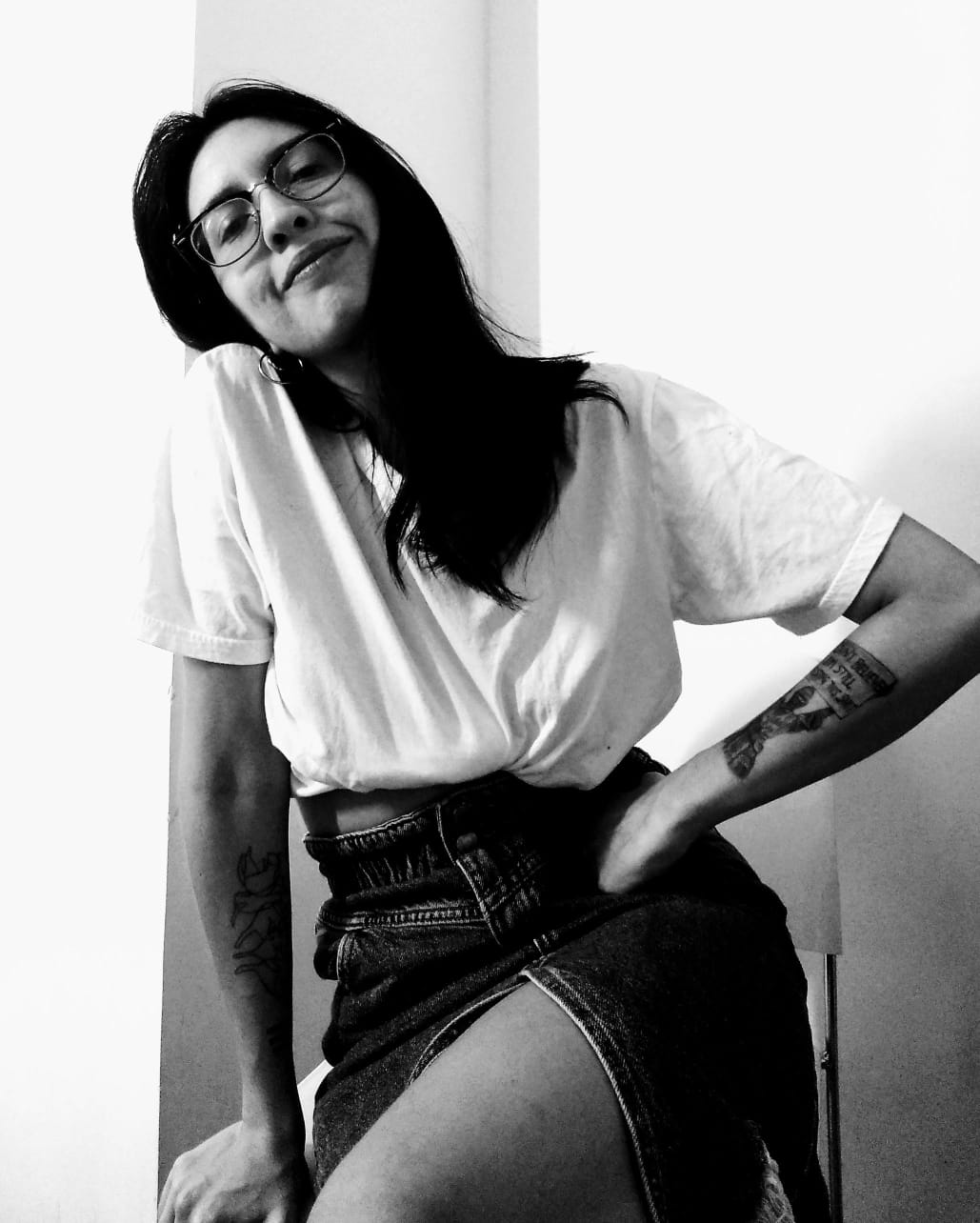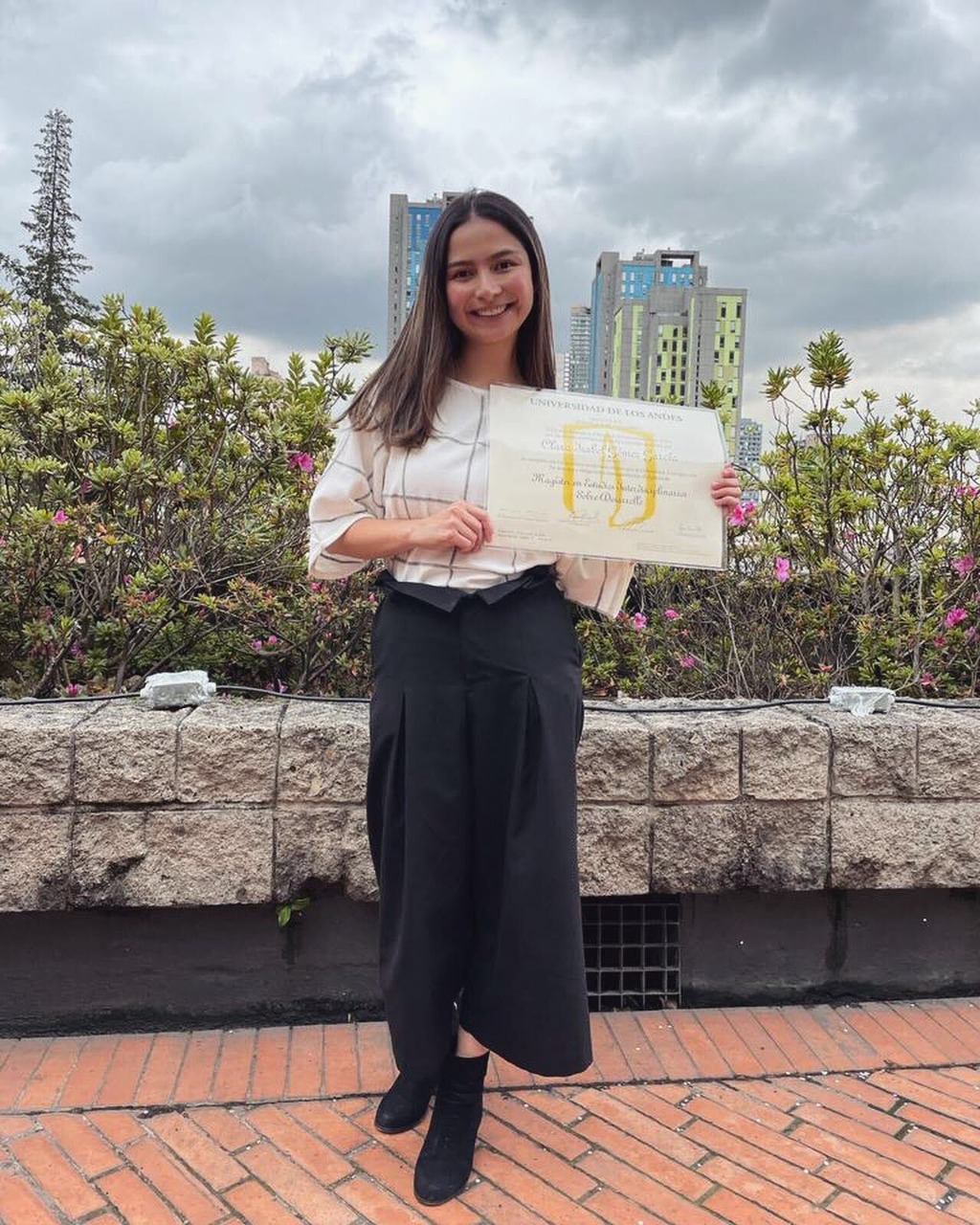Interviews with cum laude graduates

This semester, in last October's grades, two Cider students received degrees cum laude: Laura Catalina Ortiz from the Master's in Gender and Clara Isabel Gómez from the Master in Interdisciplinary Development Studies.
According to the Academic Recognition Regulations for Master's Students, “The Cum Laude degree is the highest academic recognition that the University grants to its Master's students. […] is awarded to those master's students who have a weighted average located in the highest 3% of the historical average of the graduates of their program in the last five years.”
In this section we want to exalt this distinction and share with you the interviews that Laura and Clara Isabel kindly gave us.

I wanted to do my Master's studies in Gender, but my undergraduate degree is in Industrial Design. [… ] In this case I was able to do it because Cider, as the Interdisciplinary Center for Development Studies, gave me the tools to make it possible"
What did it mean to receive this recognition?
It is always wonderful to receive mentions for quantitative processes. This, however, remains to me as a recognition of the materialization of an arduous process that was accompanied by many people. I had the opportunity to count with the support of wonderful people, such as my teachers, my classmates, both from the Master's program. For me this recognition is a sample of everything that social processes can do and how teamwork allows us to make very beautiful creations that have this type of evidence and results.
What motivated you to study at Cider?
For me, the Center was a very important and decisive place for my professional development. I wanted to do my master's studies in Gender, but my undergraduate degree is in Industrial Design. Basically it seems that there is no direct link between both areas of interest, and for that reason not all programs or universities are open to the possibility of finding it. In this case I was able to do it because Cider, as the Interdisciplinary Center for Development Studies, gave me the tools to make it possible, since it allows and promotes this vision in which different disciplines can get as close as they want and from different fields.
Could you tell us a little about your degree work? What did you do it about? What were your motivations?
My degree work is called “Our bodies flee twice: the claim of depressive and feminine bodies for the transformation of our future”. In it I make an approach to feminist studies that recognize depression as a disorder that is associated with the hegemonic construction of femininity. It was a matter of finding out what were those moldings that seemed to produce and reproduce these identity markers (depression, life, feminine), and also if they had some kind of relationship with each other, through the life trajectory of some recognized people and who recognize themselves.
I was able to see that, in effect, there is a relationship between conceiving these identity markers and a depressive disorder. In addition, as a very important personal contribution, I managed to show that depression is not inscribed within individuality: although it materializes and incarnates in some people, it is part of a whole complex structure of patriarchal, racist and class violence, which is deeply linked to capitalism, and in which, definitely, there are some bodies that are in a state of oppression.
What motivated me to investigate this topic was the fact of being able to evidence a constant history of depression in the women around me and who are very important in my life: my mother, my grandmother, even myself. So were the systematized violations of people who identify themselves in a certain way; the deep pain I saw on the faces and bodies of the people with whom I did this work; the opportunity to hear their voices, and that they could also hear mine.
I think this research helped me to recognize myself as a person who could meet, write and create. Likewise, it was fundamental in terms of the construction of my own being, and of my own being a woman: new concepts appeared in my life, such as care, togetherness, among others. Finally, I hope that the materialization of my ideas can serve many people, that it allows them to feel heard and understood and that, just like me, it leaves a mark on them.

“I investigated how the rules are created to make transactions and what changes in people's lives when they go from being renters to being owners in the informal real estate market.”
What did it mean to receive this recognition?
“Knowing how to recognize our privileges”, that was one of the reflections present during the degree, and I would like to return to it for this moment. As of the second year of the Master's degree, I was able to change jobs, and this allowed me to focus more on the University. I would not have been able to do this without the network of support and care that I have, and which I believe is my greatest privilege. For me the meaning of this achievement is to recognize all the people who gave me the opportunity to study without having other concerns in mind. Care networks are a fundamental part of these achievements that seem individual: those who listen to you, advise you, support you emotionally or materially, the caregivers who seek to provide food, rest and a home, are the ones who, ultimately, allow you to focus your mind on your goals. In this sense, this recognition is the achievement that many other people, inside and outside the university, have helped me build, and I am enormously grateful to all of them.
What motivated you to study at Cider?
The advice of my undergraduate professors was one of the biggest reasons for studying at Cider, because speaking with them I learned about the program.
Could you tell us a little about your degree work? What did you do it about? What were your motivations?
In my degree work I carried out an institutional analysis of the informal real estate market in Bogotá. I researched how transaction rules are created and what changes in people's lives when they go from renting to owning in the informal real estate market. I was interested in this topic due to a previous investigation in which I had the opportunity to work within the Center for Urban Studies of the Universidad del Rosario. Far from the "dichotomous" and usually pessimistic notion of the formal and informal city, in these ways of inhabiting and building the city there is a great institutional richness and an enormous field to investigate the legal pluralism that exists in urban planning. This should lead us to rethink under what fictions we limit access to rights for certain populations in urban areas.